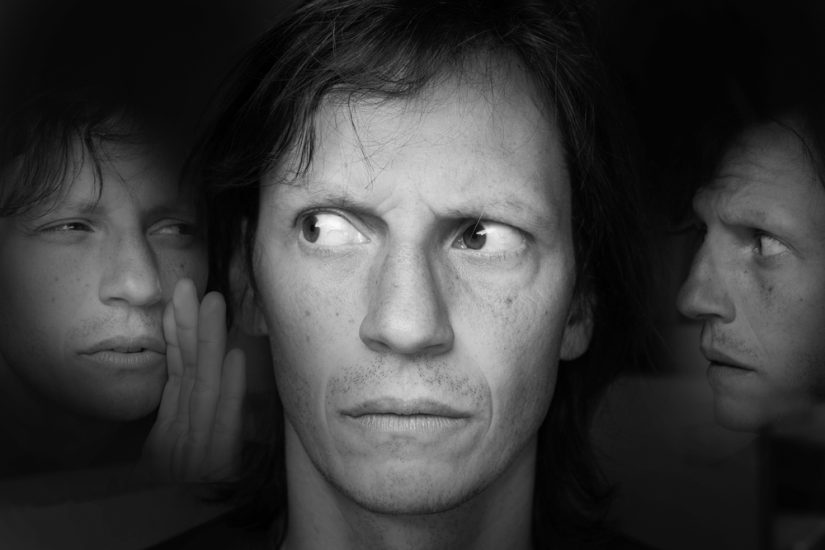- January 23, 2024
- by Shalini Murmu
- Schizophrenia
Hebephrenia, although often unnoticed, is a significant mental condition that many individuals may be unknowingly experiencing. The subtlety of its symptoms, combined with the societal stigmas surrounding mental health, often pushes people back from discussing it or seeking professional help.
Hebephrenia is also referred to as disorganized schizophrenia. It is a chronic and severe mental disorder that often shows up during adolescence or early adulthood. It forms one of the three recognized schizophrenia types, along with paranoid and catatonic schizophrenia.
Paranoid Schizophrenia
Here, the person sees prominent symptoms of paranoia and delusions, which can significantly impact one’s perception of reality.
These are the key aspects of paranoid schizophrenia:
- Delusions: People can have false beliefs that are resistant to reason or contradictory evidence. Such delusions generally revolve around themes of persecution, grandiosity, or conspiracy. For example, a person may believe that they are being targeted, spied on, or conspired against, even when there is no factual basis for such beliefs.
- Paranoia: One may experience a pervasive and intense lack of trust in others. Since they are always suspect people plotting against them, it leads to anxiety, and they prefer socially withdrawing themselves. When people begin to see harmless deeds as malicious.
- Hallucinations: While hallucinations (perceptions without external stimuli) are more commonly associated with other subtypes of schizophrenia, people with paranoid schizophrenia may also experience auditory hallucinations. These hallucinations often align with the themes of their delusions and can contribute to the reinforcement of paranoid beliefs.
- Impaired Cognitive Function: Memory, attention, and executive functioning, may be impaired in such conditions which denotes their ability to think clearly, make decisions, and maintain everyday functioning can be difficult.
- Emotional Disorders: It’s possible for emotions to be suppressed or expressed inappropriately. People may display elevated levels of anxiety, rage, or emotional detachment. The prevalence of paranoid ideas may have an impact on emotional reactions.
Catatonic Schizophrenia
This schizophrenia type has a range of motor abnormalities and disturbances in movement. People with catatonic schizophrenia may display unusual behaviors that affect their ability to move, respond to stimuli, and engage with the surrounding environment. This subtype is less common than other forms of schizophrenia.
Key features include:
- Motor Disturbances: There may be a noticeable range of motor abnormalities, including extreme rigidity, where they maintain a fixed posture.
- Stupor or Mutism: Some people with catatonic schizophrenia may enter a state of stupor, where they tend to show reduced responsiveness to external stimuli and become unresponsive. Others may display mutism, where verbal communication is greatly diminished or absent.
- Negativism: This refers to the resistance to instructions or attempts to be moved. One with catatonia may resist efforts to change their position or perform simple actions, such as raising an arm or standing up.
- Waxy Flexibility: It is a phenomenon where the person’s limbs can be manipulated and placed in different positions by another person, and they will maintain that position for a prolonged period without actively resisting.
- Excessive Movement: On the opposite end of the spectrum, individuals with catatonic schizophrenia may also exhibit purposeless and excessive movement, such as pacing, grimacing, or repetitive motions.
- Echolalia and Echopraxia: Echolalia involves the repetition of words or phrases spoken by others, while echopraxia involves mimicking the movements of others. Both can be present in catatonic schizophrenia, further contributing to the complexity of symptoms.
Recognizing Hebephrenia / Disorganized Schizophrenia Symptoms
- Hebephrenia manifests itself through disorganized thought patterns, making it difficult for individuals to communicate their ideas coherently. They may jump from one topic to another without any logical connection, often presenting their thoughts in a haphazard and fragmented manner.
- Emotional stability is severely compromised for people living with schizophrenia. They may exhibit inappropriate or exaggerated emotional responses, such as sudden bursts of laughter or tears without any apparent cause.
- Withdrawal from social interactions is the early sign of schizophrenia. People affected may struggle to form and sustain relationships due to their disorganized behavior and difficulties in relating to others.
- Individuals suffering from hebephrenia may exhibit erratic and unpredictable behavior. They may neglect personal hygiene, show little concern for their appearance, and struggle with daily activities such as maintaining a routine or managing finances.
The Treatment Approach
Medication
Antipsychotic medications are a primary schizophrenia treatment methodology for hebephrenia. These medications work by stabilizing the brain’s neurotransmitters, effectively reducing symptoms such as delusions and hallucinations. Regularly monitoring the medication’s effectiveness and any side effects is crucial.
Psychosocial Interventions
Psychosocial therapies play a vital role in managing all the schizophrenia types. These interventions include therapy sessions aimed at improving social skills, cognitive behavioral therapy, and family support. Additionally, vocational training can assist one in regaining independent living skills and re-integrating into society.
Lifestyle Changes
Adopting a healthy lifestyle can complement medical treatment for hebephrenia. Encouraging regular exercise, a balanced diet, adequate sleep, and stress management techniques can contribute to overall well-being and signs of schizophrenia.
Coping Strategies For You And Your Loved Ones
For those who have been diagnosed with hebephrenia as well as those who care for them, understanding the condition and its possible adverse effects is crucial. Acquiring knowledge about symptoms, treatment options, and available support resources can facilitate you with positive coping strategies. Those with hebephrenia can benefit greatly from a strong support system alongside. Encouraging open communication and maintaining a non-judgmental environment can improve the individual’s overall well-being.
Schizophrenia Help
Hebephrenia is a serious mental health condition that should never be taken lightly. Ignoring its impact can lead to significant consequences for not just the one going through it but also the people around them. Seeking professional help is crucial for several reasons:
- Better understanding of the complexity: Mental health experts have the knowledge and tools to comprehend the intricacies of the condition and any underlying issues contributing to it.
- Tailored treatment plans: Professionals help develop personalized treatment plans to address the unique needs of individuals with hebephrenia. These plans may include a combination of therapy, medication, and support to manage symptoms effectively.
- Strengthens coping strategies: Through therapy, one can adopt valuable coping strategies to ease the challenges associated with hebephrenia. They may be better able to control their emotions, ideas, and behaviors as a result.
- Increases support network: Seeking professional help provides access to a support network that includes therapists, psychiatrists, and other mental health professionals. This network plays a crucial role in guiding people and their families through the journey of managing hebephrenia.
- Improving quality of life: With the right support, your loved ones can experience improvements in their overall quality of life. Professional intervention can contribute to a better understanding of the condition and facilitate a path toward stability and well-being.
Get Directed To Recovery
Embarking on the journey to mental well-being is a profound step, and seeking help from professionals can make all the real difference in your life. At North America Behavioral Health Services, we understand the challenges you may face in the vast sea of options and confusion.
Our dedicated team is here to guide you, ensuring you find the right treatment center that specializes in your mental health condition. Because your well-being is our priority, and together, we can transform your life.
If you or a loved one is navigating hebephrenia, take the first step toward a brighter future now!
















